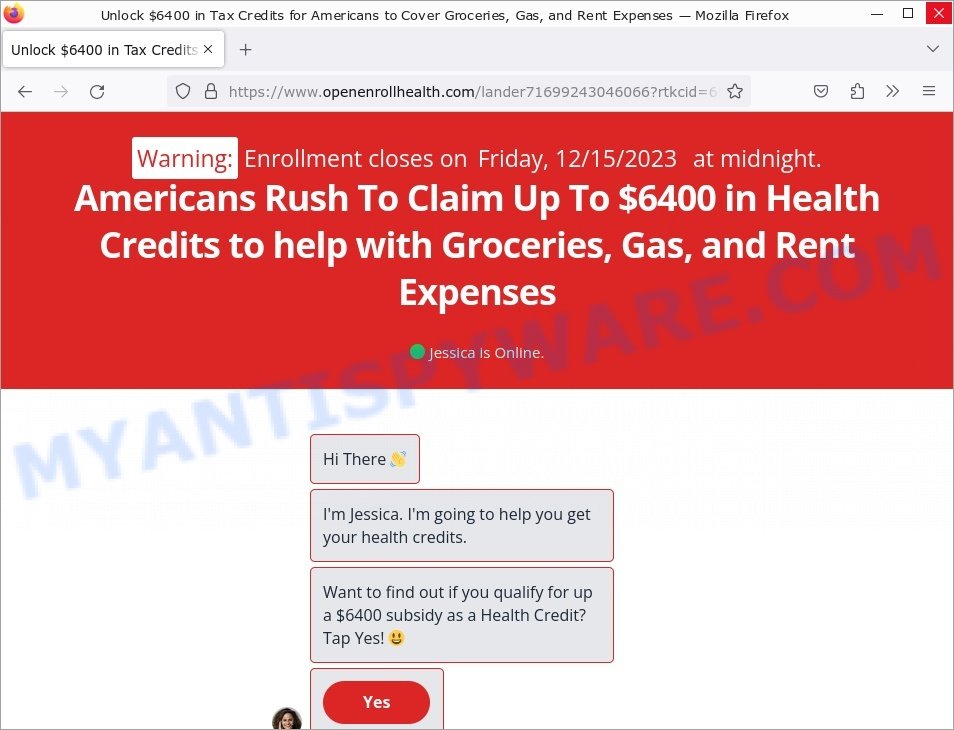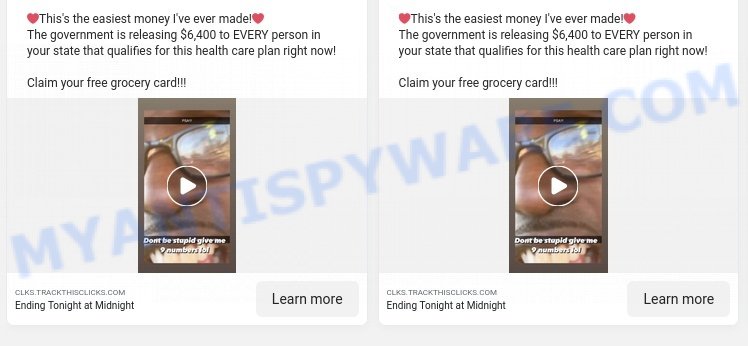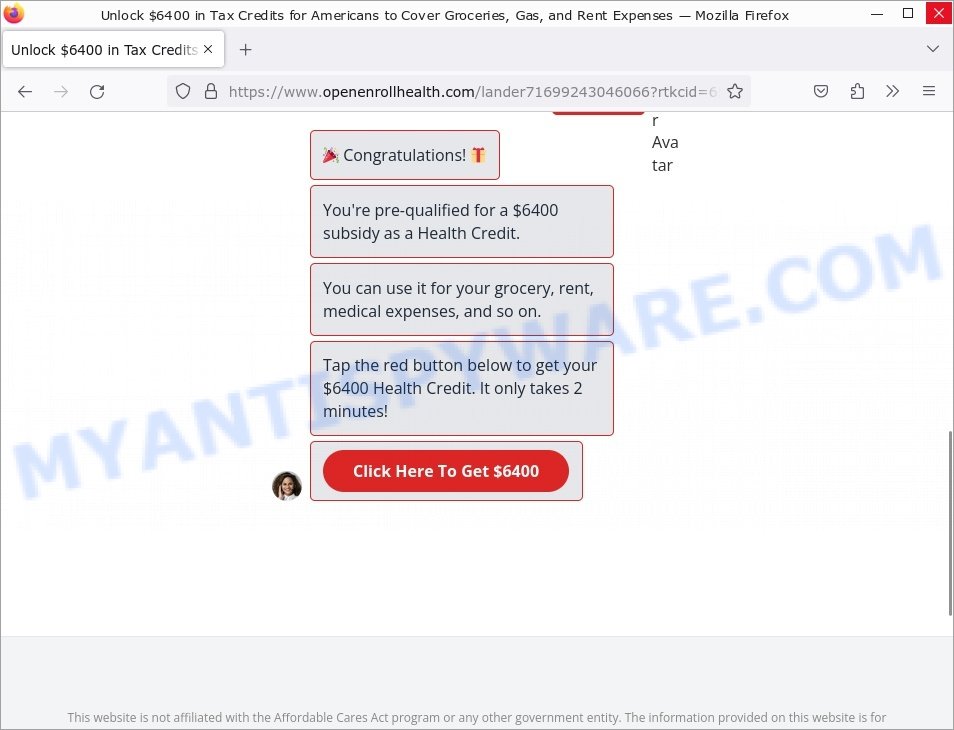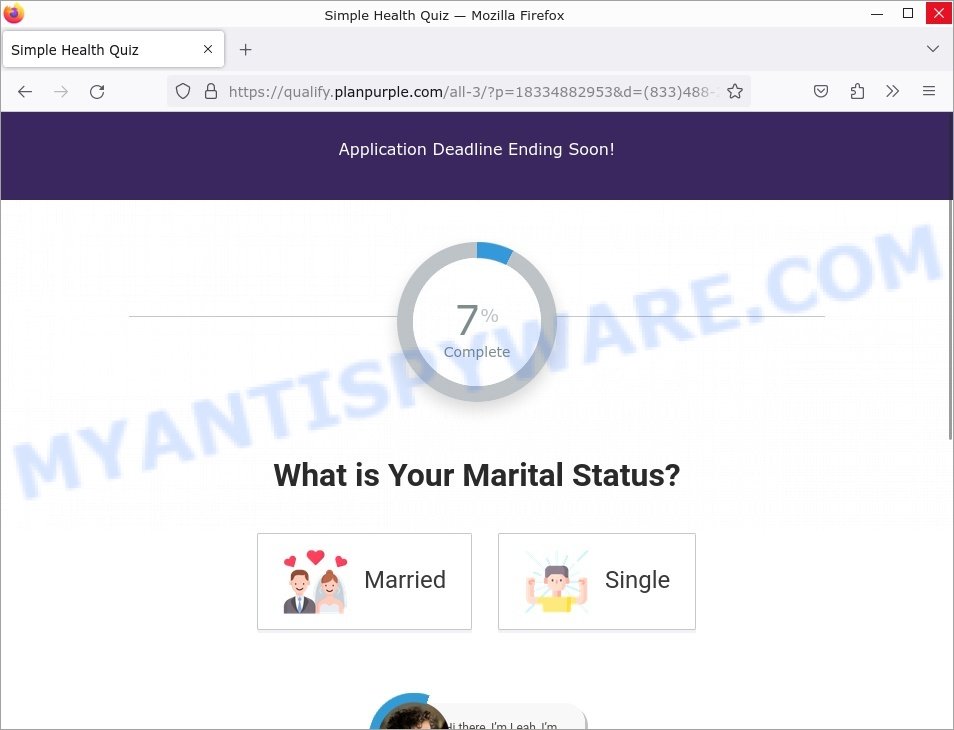Scammers are always on the lookout for ways to exploit people’s hopes, especially during the holiday season. The latest scheme, promoted on social media platforms like Facebook, YouTube and TikTok, is the “$6,400 Health Care Plan” scam. This article will dissect the scam, detailing how it works and what you can do to protect yourself from falling victim to these deceptive tactics.

What is the “$6,400 Health Care Plan” Scam
The “$6,400 Health Care Plan” scam is a fraudulent scheme that disguises itself as a government-backed health care plan offering significant financial benefits. Scammers target individuals on social media, enticing them with the promise of receiving thousands of dollars for expenses such as groceries, gas, and rent. However, the true intention behind this scam is to gather personal information and potentially enroll victims in unauthorized subscriptions.
Signs of the “$6,400 Health Care Plan” Scam
To identify the “$6,400 Health Care Plan” scam, be on the lookout for these warning signs:
- Unverified Social Media Promotions: Scams often originate from unverified sources on social media platforms.
- Too Good to Be True: Offers that promise substantial sums of money for minimal effort should raise suspicion.
- Requests for Personal Information: Any requests for personal or financial information should be treated with caution.
How the “$6,400 Health Care Plan” Scam Works
The “$6,400 Health Care Plan” scam is a deceptive scheme that preys on individuals by promising substantial financial benefits under the guise of a government-backed health care plan. Scammers use a multi-step process to trick unsuspecting victims into sharing their personal information and, in some cases, unknowingly signing up for costly subscriptions. Here’s a detailed breakdown of how this scam operates:
Social Media Promotion
The scam often begins with eye-catching advertisements on popular social media platforms like Facebook, TikTok, and others. These ads typically feature enticing claims such as, “The government is releasing $6,400 to EVERY person in your state for this health care plan right now!”.

Clicking on the Ads
When users click on these ads out of curiosity or excitement, they are redirected to a scam website. This website is designed to mimic the appearance of a legitimate government program or health care portal. It may use official-looking logos, colors, and fonts to create an illusion of authenticity.

Answering Questions
On the scam website, participants are prompted to answer a series of questions to determine their eligibility for the supposed health care plan. These questions may inquire about their state of residence, income, and other personal details.
False Eligibility Confirmation
After answering the questions, participants receive a message indicating that they qualify for the health care plan, and they are promised financial benefits ranging up to $6,400. This confirmation is entirely fabricated to maintain the illusion of legitimacy.

Personal Information Request
To claim their supposed benefits, victims are asked to provide additional personal information. This often includes their full name, address, phone number, and, most critically, their credit card details for “verification” or to cover shipping fees.

Limited Time Pressure
Scammers create a sense of urgency by setting short deadlines, claiming that the opportunity to receive the benefits will expire soon. This pressure encourages victims to act quickly without thoroughly considering the legitimacy of the offer.
Privacy Disclaimer
The scam website includes a privacy disclaimer that acknowledges the use of personal information for marketing purposes. Victims may not realize that this information will be exploited for financial gain.
What to Do If You Encounter the “$6,400 Health Care Plan” Scam
If you encounter the “$6,400 Health Care Plan” scam or suspect you’ve been targeted, take these steps to protect yourself:
- Do Not Share Personal Information: Avoid providing personal or financial information on unverified websites or to unknown sources.
- Verify Promotions: Confirm the legitimacy of offers by visiting official government websites or consulting qualified professionals.
- Report Scams: Report fraudulent promotions and websites to the social media platform and relevant authorities.
- Monitor Your Financial Accounts: Keep a close eye on your bank and credit card statements to detect any unauthorized charges.
- Stay Informed: Familiarize yourself with common online scams to better protect yourself and others.
Summary Table
| Name | $6,400 Health Care Plan Scam |
|---|---|
| Type | Social Media Scam, Phishing |
| Fake Claims | Scammers claim that the government is releasing up to $6,400 in health care plan benefits for groceries, gas, and rent expenses. |
| Disguise | Scammers use deceptive social media promotions and fake surveys to disguise their fraudulent scheme as a government health care plan. |
| Scammers Websites | Scammers use various websites to promote the scam, with changing domains to avoid detection. |
| Damage | Potential financial loss due to unauthorized subscriptions and sharing of personal information, including credit card details. |
| Distribution | Primarily distributed on social media platforms like Facebook, TikTok, and others. |
| Indicators of the Scam |
|
| Prevention Tips |
|
| Reporting Info | Report the scam to the respective social media platform, and report any suspicious activity to relevant authorities, such as the Federal Trade Commission (FTC). |
Conclusion:
The “$6,400 Health Care Plan” scam preys on individuals’ financial needs and desires for assistance during difficult times. By staying vigilant, verifying promotions, and refraining from sharing personal information online, you can protect yourself from falling victim to deceptive scams that aim to exploit your financial well-being. Always remember that genuine government programs and assistance are typically accessible through official channels, and offers that seem too good to be true often are.













